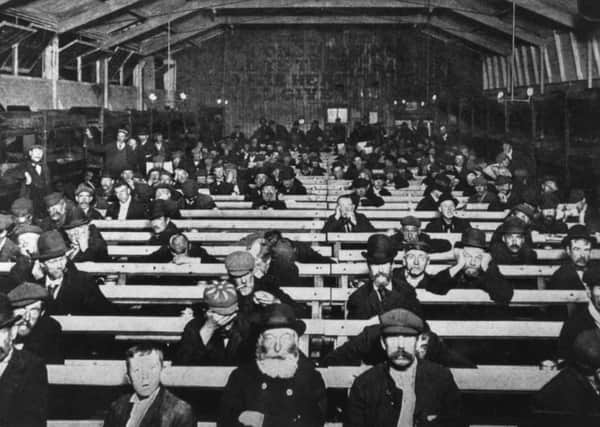Book review: The Quick by Lauren Owen


The Quick
by Lauren Owen
Jonathan Cape, 528pp, £12.99
Horace Walpole set the ball rolling with The Castle of Otranto, and Mrs Radcliffe and “Monk” Lewis picked it up and ran very successfully with it. It’s hard to believe they have many – any? – readers now, for the truth is that the Gothic novel was always essentially silly. Jane Austen made fun of its besotted devotees in Northanger Abbey, and I suppose that very few examples of the genre deserve serious attention. Bram Stoker’s Dracula terrified me when I was 12, perhaps the right age for this sort of thing.
Vampires, however, never quite go out of fashion, and Hollywood has had recent success with the Twilight films. Moreover, the generation of children reared on Harry Potter may well retain a taste for magic and fantasy, demanding something more macabre as they grow up. So there is likely to be a market for any excursion into vampire territory, and it’s natural that an intelligent young writer with an eye on the main chance should enter it.
Advertisement
Hide AdLauren Owen is such a writer. Her publishers tell us she began by writing “Harry Potter fan fictions”. She is an Oxford graduate with, they say, an MA in Victorian literature (though I assume that was only one part of her course) and she won a prize “for best writer on the University of East Anglia creative writing programme”. She is undoubtedly talented, and on the occasions in this novel when she strays out of what her publishers – again – call her “utterly beguiling fantastical world”, and ventures into real or everyday life she writes well enough to suggest that some day she may write a novel with credible characters and a credible plot. Of course, she may be advised not to do so, for such a novel might be rewarded with good reviews and poor sales, whereas further exploration of the Gothic genre may prove more profitable. And it should be said, that though The Quick is extremely silly, its publishers have extracted high praise from Hilary Mantel and Kate Atkinson.
Ms Owen respects the genre. Her novel begins and ends in a decaying country house in Yorkshire, which is just as it should be. It has a priest’s hole which plays an important part in the plot, once the children, James and Charlotte, who delighted in it, have grown up. It is not, however, authentic, having been constructed long after Catholic priests had no need to hide from the agents of the state; this inauthenticity is a nice touch, and perhaps a warning to the reader. We are told incidentally that Lauren Owen grew up in the grounds of such a house – perhaps, one hopes, in the sort of hermit’s grotto which eighteenth century landowners used to commission as a folly. Most of the action takes place, however, in London, in scenes of high-life in the West End and low-life elsewhere.
While the low-life scenes are more or less obligatory for anyone writing a Victorian pastiche, Ms Owen has created an original fantasy in the form of the “mysterious” (publisher’s word) Aegolius Club. The Aegolius is a nocturnal owl, described as unsociable, which, having identified its prey, swoops on it from its perch. Apart from the perch, this is much the way vampires behave, and the Aegolius – where, significantly, no food is served, is a club for upper-class vampires. If you had been about in Victorian London, you might have found it, had you been rash or unwary, just off St James’s Square. There are also, I should say, lower-class vampires, known as the Alia, much disapproved of by the members of the Aegolius. It is good to know that the social stratification of nineteenth-century England was replicated in the vampire world. One has, however, to confess that one had no idea that vampires were quite so numerous in Queen Victoria’s London as seems to have been the case.
Essentially, the novel is a quest, followed by a chase. Anyone interested in the vampire world will learn a lot – that vampires can read the minds of those they call “The Quick”, for instance – and may indeed be well prepared to follow a degree course in Vampire Studies – I’m sure one must be available somewhere. The plot is properly complicated. There is no shortage of incident or, of course, blood. There are nice touches – the horror of becoming an inadvertent vampire, which is what befalls the young man who is, I suppose, the hero. The whole is ballasted by scholarship and mock-scholarship, and there is the all but obligatory journal-keeping as an aid to verisimilitude. Some readers might wish for a clearer narrative line, and may find themselves lost in the city jungle or chasing shadows. But the real enthusiasts for vampire- fantasy will surely revel in the complexity. And I take my hat off to Lauren Owen for her delightful, and sublimely silly, creation of the Aegolius Club.
She must surely have had great fun writing this farrago of elegant nonsense, and those who like this sort of thing will surely like it no end. One need add only that the number of unsolved vampire killings in the streets of London makes one wonder if there was some corrupt connection between the Aegolius Club and the Metropolitan Police.